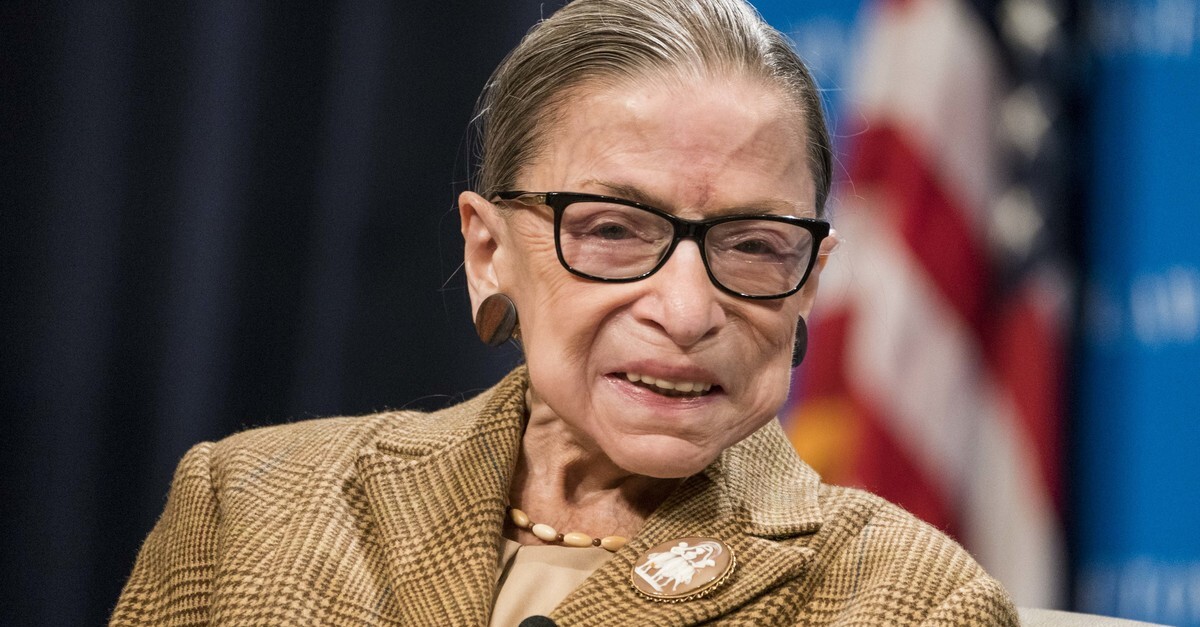
The U.S. Supreme Court held oral arguments on Tuesday to suss out the legal issues and positions of various interested parties in two consolidated cases concerning valid congressional subpoenas previously issued to Deutsche Bank and the accounting firm Mazars USA LLP for President Donald Trump‘s various financial records.
Justice Ruth Bader Ginsburg quickly sought to distinguish the long-simmering battle between the President and his businesses and congressional Democrats over the 45th president’s tax returns from prior instances in which the U.S. Congress has mounted similarly invasive and high-profile investigations of a sitting president.
“Counsel, in so many of these prior cases, there was a cooperation,” Ginsburg began. “For example: tax returns. Every president voluntarily turned over his tax returns. So, it gets to be a pitched battle because President Trump is the first one to refuse to do that.”
The famed liberal justice continued:
Initially, [Trump] said because of an audit was ongoing. Now it seems to be broader than that. But the aura of this case is really: “Sauce for the goose that serves the gander as well.” So, how do you distinguish, say, Whitewater when President Clinton’s personal records were subpoenaed from his accountant or even Hillary Clinton‘s law firm billing records were subpoenaed. It seems that in prior cases–you say this one is one-of-a-kind–but it seems that in prior cases there was a much greater collision of interests. [Indistinguishable] the Nixon tapes. How do you distinguish all of those cases, Watergate, Whitewater, the Nixon tapes case, the Paula Jones case?
“Well, your honor, we distinguish them in a number of ways,” Trump’s attorney Patrick Strawbridge responded. “With respect to Watergate and Whitewater, obviously, those are cases of relatively recent vintage. And in separation of powers disputes, this court has generally–such as in Noel Canning–looked back for a much longer precedent for the type of issue that needs to be decided with examples of the encroachment on the separation of powers. And the recent examples–there are just a handful of them that the House identifies–are too recent under that stricture, as the court recognized in Southwest General.”
The Noel Canning case was a June 2014 Supreme Court opinion which held that a president cannot make recess appointments unless the Senate is actually in recess. The unanimous decision addressed the separation of powers doctrine only briefly when Justice Stephen Breyer noted: “We recognize, of course, that the separation of powers can serve to safeguard individual liberty, and that it is the ‘duty of the judicial department’—in a separation-of-powers case as in any other—’to say what the law is.’ But it is equally true that the longstanding ‘practice of the government,’ can inform our determination of ‘what the law is.'”
Southwest General was a March 2017 case concerning acting officials and the Federal Vacancies Reform Act of 1998. The only real discussion of the separation of powers doctrine came in Justice Clarence Thomas‘s concurrence. For example, he wrote: “The Judicial Branch must be most vigilant in guarding the separation between the political powers precisely when those powers collude to avoid the structural constraints of our Constitution.”
Due to the rigid time constraints imposed on questions and answers by Chief Justice John Roberts, Strawbridge didn’t have much time to make his initial point in response to Ginsburg’s question after that lengthy recital. However, he eventually did get to the apparent heart of the matter by saying that Whitewater, Watergate, and the Nixon Tapes case all involved some level of agreement between the parties.
“Now, it’s also important to note that in all of those cases, almost all of those case actually involved cooperative efforts,” Strawbridge said. “As the court recognized below, consent is not the major of constitutionality. In none of those cases was there a challenge to the scope or to the power of the legislative committee in that case to request those documents.”
The president’s attorney is not alone in his estimation there.
“[I]n the 1990s, first the House and Senate Banking Committees and then a Senate special committee investigated President and Mrs. Clinton’s involvement in the Whitewater land deal and related matters,” the U.S. Court of Appeals for the D.C. Circuit noted last October in a decision which ruled that Trump’s tax returns were, in fact, fair game for Congress. “Thanks to a last-minute compromise between the White House and the Senate, the courts were kept out of a dispute over whether the special committee could subpoena meeting notes taken by President Clinton’s former lawyer.”
Principal Deputy Solicitor General Jeffrey Wall, representing Trump as a government official, made a separate attempt to protect Trump’s tax returns by asserting that sitting presidents are held to a different legal standard.
“How’d that work out in the Paula Jones case?” Ginsburg quipped.
[image via Sarah Silbiger/Getty Images]